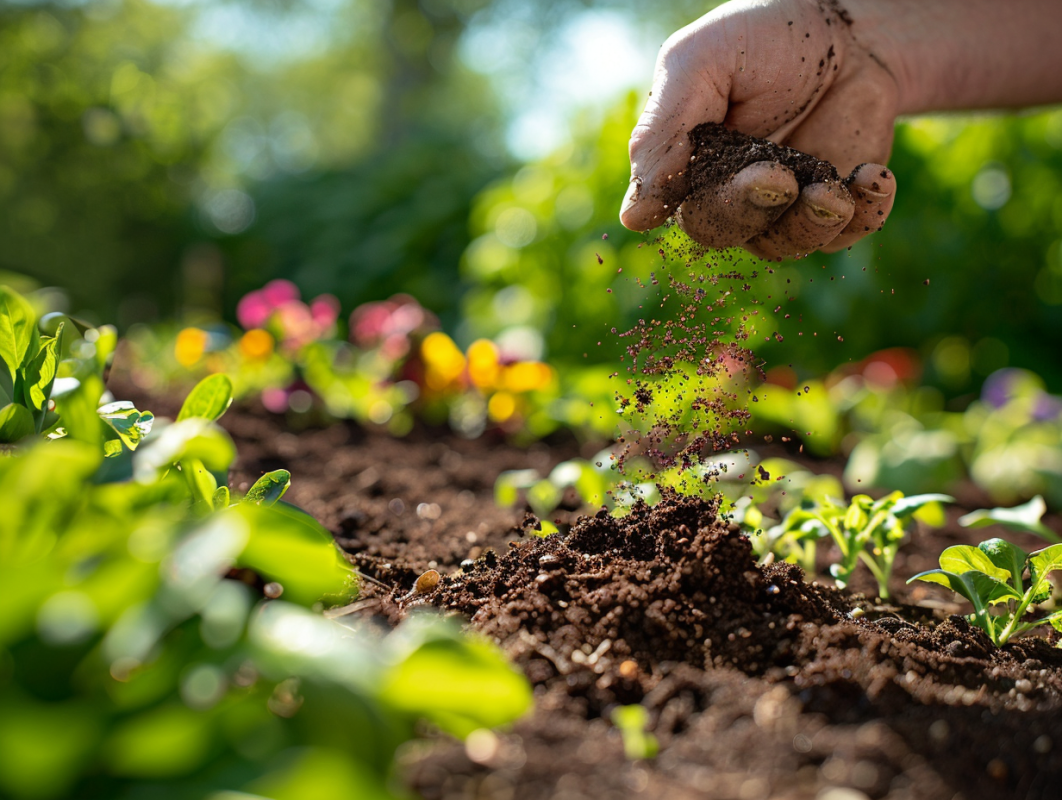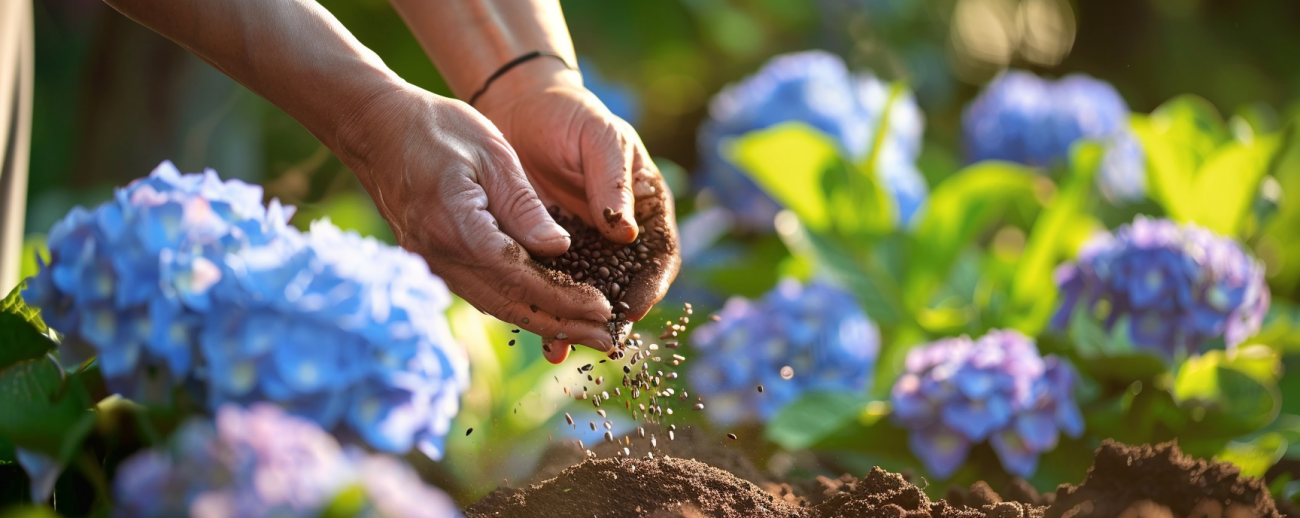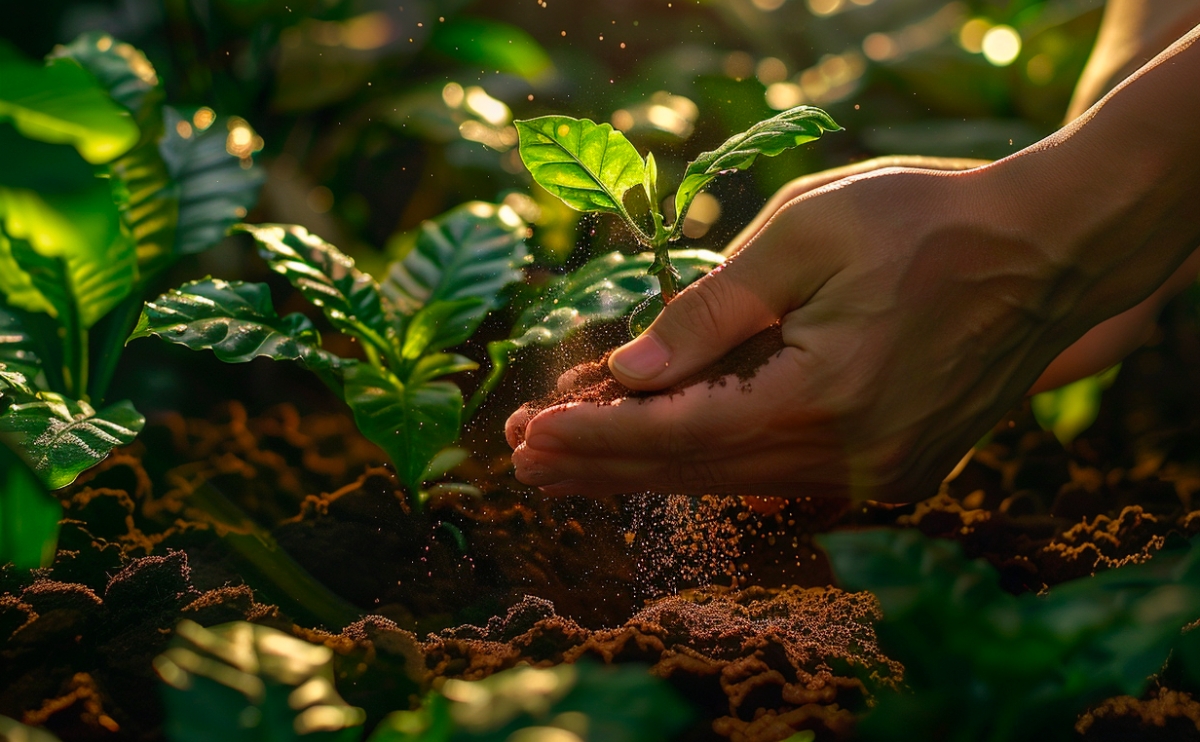Coffee grounds are a multifunctional product lauded for their versatile uses ranging from skincare, as a scrub, to household, as an air freshener, and notably in gardening as a fertilizer. With the spring planting season upon us, the application of coffee grounds in the garden becomes especially relevant. This article will delve into how coffee grounds can be used to enrich your garden soil, with a focus on their benefits during the vital spring period when planting kicks off.
Composting with Coffee Grounds
Adding coffee grounds to your compost heap introduces nitrogen, a crucial element for compost’s maturation process. Used coffee filters are compostable too, but coffee capsules are not suitable for composting. It’s important to balance the nitrogen-rich coffee grounds (considered “green” compost material) with “brown” compost material like leaves, sawdust, or wood chips to maintain a healthy compost balance.
Coffee Grounds as Fertilizer
Gardeners often apply coffee grounds directly to the soil as a fertilizer. It’s essential to understand that while coffee grounds add nitrogen to your compost, they don’t immediately enrich the soil with nitrogen. However, they contribute beneficially by adding organic matter, improving soil drainage, water retention, and aeration, thus fostering a healthier garden environment.
Used coffee grounds also support beneficial microorganisms and attract earthworms, enhancing soil health and plant growth. There’s a common belief that coffee grounds acidify soil, benefiting acid-loving plants. This holds true primarily for fresh coffee grounds. In contrast, grounds from your coffee maker or espresso machine are neutral with a pH around 6.5 and do not significantly alter soil acidity. Rinsing used coffee grounds can further neutralize them, making them a versatile addition to various soil types.

How to Use Coffee Grounds in Your Garden
- Direct Application: Mix coffee grounds into the soil around your plants. Cool, leftover coffee can also be poured around plant beds and flower gardens, providing similar benefits.
- As Mulch: Coffee grounds can serve as mulch for plants, helping retain soil moisture and suppress weeds.
- Pest Repellent: Spread around plants, coffee grounds can deter slugs and snails.
- Cat Repellent: They can keep cats from using your vegetable beds or flower gardens as a litter box.
- Worm Food: If you’re into vermicomposting, coffee grounds are excellent food for worms.

Fresh Coffee Grounds in Your Garden
Fresh coffee grounds can be spread around acid-loving plants like azaleas, hydrangeas, blueberries, and rhododendrons. Many vegetables prefer slightly acidic soil, though tomatoes may not respond well to coffee grounds. Root vegetables like radishes and carrots, however, tend to thrive when fresh grounds are mixed into the planting soil, potentially suppressing weeds and deterring pests.
However, using fresh coffee grounds directly can sometimes inhibit certain fungal pathogens due to caffeine content. To avoid potential adverse effects on plants, consider using decaffeinated coffee or sparingly applying fresh grounds.

Conclusion
As we embrace the spring gardening season, integrating coffee grounds into your gardening routine can significantly enhance your soil’s health and fertility. Whether used in compost, applied directly to the soil, or utilized as mulch, coffee grounds offer a sustainable and effective way to enrich your garden. By understanding the properties and appropriate uses of coffee grounds, gardeners can improve plant growth, soil structure, and even pest management, making the most of this readily available organic resource.
Detailed Guides for Planting Vegetables, Herbs, Greens & Lettuce, Peppers, and Wildflowers in Your Garden:
At FarmerValley we offer detailed guides for planting vegetables, herbs, greens & lettuce, peppers, and wildflowers. These guides provide step-by-step instructions for planting and caring for your plants, as well as tips for getting the best results. Check our growing guides and plant your own non-GMO garden with confidence.
Planting non-GMO seeds is a great way to enjoy fresh and healthy vegetables and herbs while also knowing that you’re avoiding harmful additives. With these essential tips and top lists, as well as our detailed guides, you’ll be on your way to a bountiful harvest in no time.
Elevate your gardening experience with FarmerValley’s premium seeds! Choose from our wide selection of high-quality varieties to enhance your garden and enjoy a bountiful harvest. Trust in our expertise and start your journey towards a thriving and beautiful garden today.

